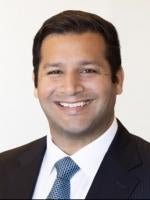Last week, the Sixth Circuit issued an important decision limiting the scope of claims alleging violations of the Anti-Kickback Statute that are brought under the False Claims Act. See Shannon Martin, M.D., et al. v. Hathaway, et al., No. 22-1463 (March 28, 2023). Chief Judge Sutton wrote the opinion for the Court, which Judge Siler joined in full. Judge Mathis joined in part and in the judgment.
As many of our readers know, the False Claims Act imposes civil liability for “knowingly present[ing], or caus[ing] to be presented, a false or fraudulent claim [to the government] for payment or approval.” 31 U.S.C. § 3729(a)(1)(A). The Act covers many types of false claims, including claims for “items of services resulting from a violation” of the Anti-Kickback Statute, 42 U.S.C. § 1320a-7b(g). The Anti-Kickback Statute, in turn, prohibits medical providers from making referrals “in return for” “remuneration.” Id. § 1320a-7b(b)(1)(A).
In Hathaway, the Sixth Circuit clarified the meaning of “remuneration” and “resulting from” under these provisions. The case arose from a business dispute between two physicians who maintained an ophthalmology practice in a small Michigan city called Marshall. One of the physicians was the owner of the practice and the other was an employee. The ophthalmology practice was the only local option available to patients of a local hospital when those patients required ophthalmology services. Both the ophthalmology practice and the hospital referred many patients to each other over the years.
One day, the employee physician discovered that the owner physician was negotiating a merger with another ophthalmology practice in another city. When the employee discovered she might lose her job in the process, she sought, and eventually received, a tentative offer to be a physician at Oaklawn Hospital, subject to board approval. But the board never approved.
The owner had convinced the hospital that, even after the merger, he would still perform many surgeries at the hospital. Indeed, he said he expected that business to increase. But, if the hospital were to hire the employee, the owner claimed that would be the “death knell” of his practice because the hospital’s future patient referrals would go to the employee instead of the owner’s practice.
Based on these discussions with the owner, the board voted not to hire the employee. And although the merger between the two ophthalmology practices never went through, the employee left the owner’s practice anyway. As relevant here, the employee eventually brought a qui tam suit under the federal False Claims Act, claiming that the owner had engaged in an illegal and fraudulent scheme under the Anti-Kickback Statute. The District Court ultimately rejected the claims as a matter of law, and the Sixth Circuit affirmed.
The Sixth Circuit first tackled the question whether the hospital’s decision to not hire the employee qualified as “remuneration” under the Anti-Kickback Statute. (Remember, that statute prohibits medical providers from making referrals “in return for” “remuneration.” 24 U.S.C. § 1320a-7b(b)(1)(A)). In other words, does “remuneration” under the statute cover only “payments and other transfers of value?” Opinion at 5 (emphasis added). Or does it cover “any act that may be valuable to another?” Id.
The Sixth Circuit held that it covers only the former: payments and other transfers of value. In explaining why, Chief Judge Sutton conducted a thoroughly textualist analysis.
As one might expect, the Court started with dictionaries published around the time of the text’s enactment. Those dictionary definitions “consistently described remuneration as a form of payment.” Opinion at 6. But the Court didn’t stop with dictionaries. Among other sources, the Court also looked at (1) other federal statutes using the term “remuneration” enacted around the same time as the text here; (2) the statutory context; (3) statutes analogous to the Anti-Kickback Statute; (4) Office of Inspector General administrative guidance; and (5) other court decisions. All of these sources pointed to the same conclusion. “Remuneration” means a transfer of value and not just anything that might be considered valuable to another. Opinion at 6-9. For good measure, the Court also noted that the employee’s arguments lacked a limiting principle. Under the employee’s anything-of-value definition, it might be unlawful for a general practitioner to refuse sending patients for kidney dialysis treatment to a local health care facility until the facility obtains better medical equipment. The Court thought it “unlikely” that the statute swept that far. Opinion at 9.
That all said, the Court did not slam the courthouse door completely shut on the possibility of another plaintiff possibly alleging remuneration based on something other than a strict transfer of value. But if an opening remains, it is ever so slight. The Court made clear that any such application would need to entail “more specific requirements, conditions, and commitments” than the hiring decision at issue in this case. Opinion at 10.
Moving beyond remuneration, the Court concluded that the employee’s claim failed equally on causation (because there was none). The Court explained that “[w]hen it comes to violations of the Anti-Kickback Statute, only submitted claims ‘resulting from’ the violation are covered by the False Claims Act.” Opinion at 12 (quoting 42 U.S.C. § 1320a-7b(g)). The Court reasoned that the ordinary meaning of “resulting from” was “but-for causation,” and the Court was bound by that ordinary meaning unless text or context indicated a contrary meaning. Id. Here, neither did. That holding independently doomed the employee’s claims. According to the Court, the employee had not identified one claim for reimbursement “that would not have occurred anyway, no matter whether the underlying business dispute occurred or not.” Opinion at 13. That was largely because Oaklawn was the only hospital in the area and South Michigan was the only local ophthalmology group. But independent decisions also broke down “any plausible chain of causation” for most claims. Id.
Underlying the Court’s reasoning seemed to be the Sixth Circuit’s concern that an overly expansive reading of Anti-Kickback Statute violations under the False Claims Act might extend liability to “[m]uch of the workaday practice of medicine.” Opinion at 15. In regards to the False Claims Act, specifically, the Court’s analysis suggests it views the Act as an anti-fraud statute—not an all encompassing cost recovery statute.
It’s worth noting that, under Hathaway, the Sixth Circuit now joins the Eighth Circuit in adopting the but-for causation standard for establishing violations of the Anti-Kickback Statute under the False Claims Act. See U.S. ex rel. Cairns v. D.S. Medical LLC, 42 F.4th 828, 836 (8th Cir. 2022). But Judge Sutton acknowledged in his opinion that the Third Circuit had adopted a “contrary conclusion.” Opinion at 15. See United States ex rel. Greenfield v. Medco Health Sols., Inc., 880 F.3d 89, 100 (3d Cir. 2018) (holding that a plaintiff may establish liability by showing that reimbursement was sought for medical care provided in violation of the Anti-Kickback Statute).
Perhaps recognizing that on both “remuneration” and “resulting from,” the Court was articulating not one but two significantlimits on these sorts of claims going forward, the Court ended its analysis on a note of reassurance for future plaintiffs. Even as construed under the Court’s opinion, there remained “plenty of room to target genuine corruption” under the Anti-Kickback Statute and False Claims Act. Opinion at 15. Citing much caselaw, the court noted that transfers of value “potentially” encompass “a range of payments,” such as, “consulting contracts,” “inflated rent payments,” “bogus salaries,” “bonuses,” “speaking fees,” etc. Id. And “[s]o long as proof exists that the referrals would not have been made without the remuneration, and that claims would not have been submitted to the government without those referrals, causation for False Claims lawsuits would be satisfied too.” Id. at 15-16.
It remains for future cases to determine whether that prediction bears out, but the Court’s careful analysis should inspire confidence. Judge Mathis issued a short concurrence noting that he joined only the Court’s opinion on causation. Because that section thoroughly explained why the employee here had failed to allege causation, Judge Mathis would have “save[d] the interpretation and analysis of ‘remuneration’ for another day.” Concurrence at 17.





 />i
/>i

